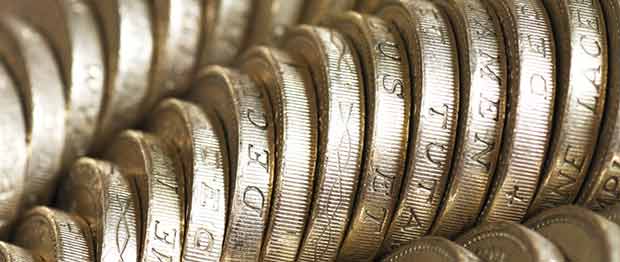
The Pound to Euro exchange rate (GBP/EUR) inched higher by around a quarter of a cent to 1.2615 yesterday afternoon following the European Central Bank’s latest policy decision and press conference.
The ECB left its benchmark interest rate at the current record low of 0.15% and maintained its unprecedented negative deposit rate of -0.10%. GBP/EUR remained flat at 1.2590 following the announcement because it had been widely predicted beforehand.
However, there was a little bit more excitement surrounding ECB President Mario Draghi’s press conference later in the afternoon. The ECB Chief stated that the bank has employed a consultant to help plan an asset purchasing programme and hinted that consolidated Eurobonds were a possibility for the future.
The hiring of a specialised consultant was seen as an encouraging sign that the ECB will finally bite the bullet and start purchasing Eurozone sovereign bonds sometime in the foreseeable future. Although this much was already largely priced into the Euro exchange rate the news did weigh on the single currency because it was seen to suggest that the scheme is closer to getting the go ahead.
Draghi claimed that the recent deterioration in Eurozone inflation data was merely a blip on the radar and posited that medium term inflation prospects are ‘firmly anchored’ inline with the bank’s 2.0% target.
However, the mere fact that the ECB is considering unleashing a once taboo QE scheme shows that policymakers at the bank consider deflation to be a serious threat to the currency bloc.
This bodes well for future Sterling to Euro exchange rate strength, even if demand for the Pound has waned slightly in recent weeks.
Some analysts have suggested that the ECB’s proposed bond-buying programme could actually boost the value of the Euro by spurring economic growth in the region.
Indeed, in recent months Britain and the United States have both benefitted from robust GDP expansions, which have translated into stronger exchange rates for their respective currencies, the Pound and the US Dollar.
However, these appreciations have been a long time coming and it stands to reason that the single currency would first go through a period of depreciation, as investors look for higher-yielding assets, before appreciating when economic growth is (hopefully) firmly established in the Eurozone.
Pound to Euro Forecast
Next week’s British labour market data combined with the Bank of England’s quarterly inflation report will likely have a decided impact on the Pound to Euro exchange rate.
Further declines in the unemployment rate paired with a jump in average earnings could boost the Pound, whilst any hints from the BoE that the first rate hike could come in November would also bode well for Sterling.
On the other hand, another month of wages being comprehensibly outpaced by inflation and a neutral policy statement from the BoE would likely send GBP/EUR lower.

Comments are closed.